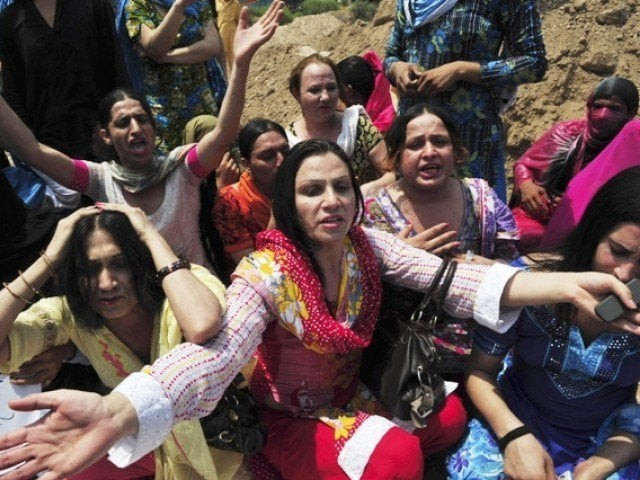Study on trans-people paints stark picture
Many in the community don’t seek medical help out of fear of harassment

PHOTO: EXPRESS
The research titled, ‘Barriers to the Provision of and Access to Quality Healthcare for Transgender Population of Pakistan’ focuses on identification of gaps and challenges in access to quality healthcare services faced by the community. The research conducted by Forum of Dignity Initiatives and Blue Veins was recently launched in Islamabad.
Federal govt appoints first transgender person
The study reveals 78.75% respondents from the transgender community feel they do not have access to qualified healthcare providers while only 21.25% stated they have sufficient coverage.
The data shows 92% of the respondents reported facing some form of discrimination which is not limited to refusal of care, harassment, insensitive and disrespectful behavior but even verbal abuse and violence. More than half of all respondents claimed to have had incidents of providers denying care, using harsh language, harassment and physical violence, or blaming the patient’s gender identity as their cause of illnesses.
“Moreover about 81.3% of the respondents stated expected harassment as the main cause that prevents them from seeing a qualified doctor,” says the report.
It further reveals that, around 56.7% respondents shared they feel uncomfortable while 40% very uncomfortable in discussing their status with healthcare providers (HCPs) and discomfort is often experienced more at registration counters with humiliating remarks or gestures from the hospital staff.
Transgender people accuse Charsadda police of torture
Moreover, interviews also reiterated the difficulty in finding HCPs who are sensitive and knowledgeable about specific health issues of the transgender people. Resultantly, self- treatment and self-prescriptions are very common in their community.
It further reveals that in Pakistan majority of healthcare practitioners and providers lack knowledge regarding transgender specific health issues or how to deal with them. Therefore this lack of awareness creates discomfort in working with transgender patients, and compromises their ability to provide quality healthcare to this marginalised population.
According to the study the most common health issues which are being faced by transgender community across the country include hormonal disorders, complications resulting from castration, and psychological issues due to their identity, social and economic status. A number of respondents shared among other mental health issues, cycles of depression and anxiety are very common among them.
It further says that although the legal system in the country recognises three gender categories, the PMDC curriculum is based on conventional heteronormative assumptions and gender and sexual binary.
First-ever research on healthcare needs of transpeople carried out in Pakistan
The study identified this as a major overarching gap in all curricula reviewed for the research which leads to poor, if any, knowledge and attitudes towards anyone who does not fit in the conventional sexual and gender identities and/or orientations. Moreover, interchangeable use of the terms ‘sex’ and ‘gender’ also leads to misunderstandings regarding transgender health.
The research also identified lack of any specific guidelines or recommended content for teaching about sexual wellbeing including, but not limited to, concepts of mental health and sexuality, responsibility, and sexual rights.
The study concludes that though medical graduates and practitioners are interested in transgender health, they are not being adequately prepared in medical schools to feel comfortable with the idea of caring for transgender individuals. It bring out a strong notion that clear standards and guidelines on best practices for provision of basic as well as specialised healthcare to transgender does not exist in the current healthcare system.


















COMMENTS
Comments are moderated and generally will be posted if they are on-topic and not abusive.
For more information, please see our Comments FAQ